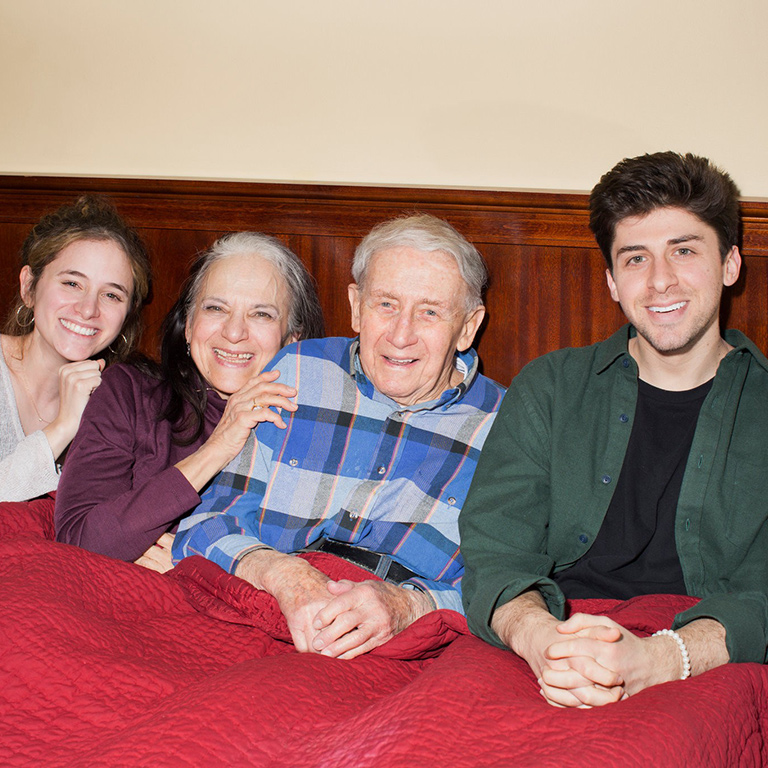Source: The New York Times
People often ask me where an article of mine came from, and my answer, quite frequently, is “How much time do you have?”
“The Woody Allen Reboot You Won’t See at the Oscars (or Maybe Anywhere),” about a remake of “Annie Hall” with a cast from a Manhattan senior center, began more than 700 miles from New York City, at Indiana University, where Matt Starr took a class about New York’s downtown avant-garde art world.
“It changed my life,” Mr. Starr, now 29 and living in New York, said.
Among the artists covered in the class was the filmmaker Jonas Mekas, whose movies struck a chord with Mr. Starr: “Jonas is just a living legend,” he said.
Mr. Mekas, 95, is also one of six older New Yorkers whom I started following three years ago for a New York Times series called “85 and Up,” and, more recently, a book drawn from the series, “Happiness Is a Choice You Make: Lessons From a Year Among the Oldest Old.” The presence of Mr. Mekas drew Mr. Starr to the series.
Sometimes I think Jonas Mekas is my connection to half the world.
In early January, after the latest installment in the series, “Want to Be Happy? Think Like an Old Person,” in which I wrote about the joys of spending time with older people, Mr. Starr contacted me on Facebook. He and his directing partner, Ellie Sachs, 25, had just finished making “My Annie Hall,” starring a 94-year-old man, Harry Miller, in the Woody Allen role, and Shula Chernick, 73, as Annie Hall.
We were telling the same story in different media.
“Annie Hall” had been one of my favorite movies, but I was more drawn by the generational drama playing out among the new film’s principals. Mr. Starr and Ms. Sachs and their artist friends were struggling to get by in a city that was increasingly unwelcoming to young people and artists. Mr. Miller and Ms. Chernick and their friends from the senior center, by contrast, were bouncing between art openings and lectures and free movies at the center, returning at night to Upper East Side apartments for which many paid anachronistically low — and frozen — rents.
“They’re all dating and having a great time,” Mr. Starr said. “We have bills to pay, it’s New York, and we’re either doing what we like and not making enough money to live a comfortable life, or we’re doing what we hate and making enough money, and not happy.” Plus, he told Ms. Chernick, “You’re much more active than our friends.”
Mr. Miller, who is not dating, said he had never been happier.
Sociologists call this the “paradox of aging,” citing research that shows older people are more content and less stressed than teenagers or young adults.
“There is a life satisfaction that sets in with older adults, but 20-year-olds are the most tortured generational group we know,” said Jessica Balboni, who runs the senior center where the gang all met. “Not just for the living conditions, but developmentally — who am I, what’s my identity, who am I going to become?”
Ms. Chernick sympathized with the young directors. “We had challenges coming up, but I don’t think life was as difficult as it is now,” she said. “It wasn’t as costly. And I enjoy the little things. I walk down the street and I can’t be unhappy when I see a baby or some of the dogs.”
Mr. Starr and Ms. Sachs said they were trying to get there. In the meantime, they had new friends and surrogate grandparents.
As for Mr. Miller, he hoped his next movie would allow him to sing and dance. He even had a number he was interested in, made famous by Maurice Chevalier: “I’m Glad I’m Not Young Anymore.”


